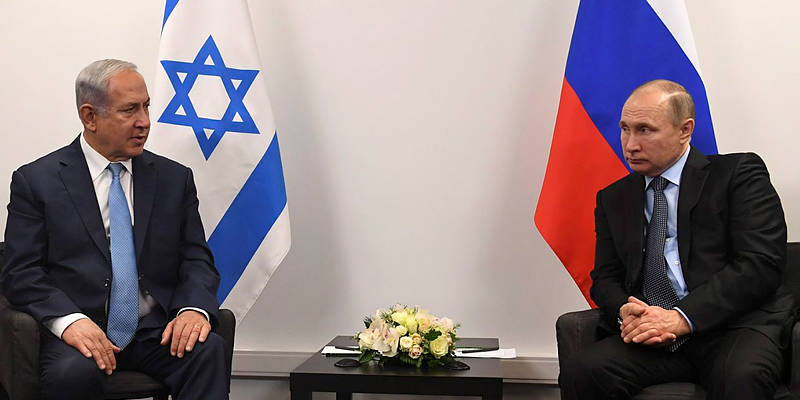Netanyahu warned that the dangers of Iranian entrenchment in Syria would exceed the threat posed by Hamas terrorists in Gaza.
By United With Israel Staff
Prime Minister Benjamin Netanyahu is defending his policy regarding the situation in the Gaza Strip, which according to some has not been strong enough on hitting Hamas and other terror groups in response to rocket attacks on Israel.
Interviewed in the Israel Hayom newspaper, the prime minister explained that his strategy is part of a larger regional plan which includes combating the Iranian threat.
During the current campaign ahead of Israel’s April 9 elections, Netanyahu has repeatedly accused his main challenger, Benny Gantz, who served as Israel’s military chief from 2011 to 2015, of backing the nuclear deal reached between Tehran and six world powers in July 2015.
The U.S. backed out of the deal under President Donald Trump in May 2018.
“You need to understand that around us is radical Islam. The greatest Islamist power is Iran. Iran is trying to acquire nuclear weapons. I’m stopping that,” said Netanyahu in the newspaper interview.
However, in addition to its nuclear ambitions, Tehran also threatens the Jewish State through conventional military means on a daily basis, by militarily and financially supporting Hamas in the Gaza Strip, in Israel’s south, and Hezbollah in Lebanon and Syria to the north.
“Iran is trying to move its army…to Syria,” said the prime minister in Israel Hayom.
“I’m stopping them there,” he said, adding that he has already been successful in “ensuring that we have freedom of movement in dealing with the Russian army, and that was no small amount of effort.”
Netanyahu warned that the threat of allowing Iran to become entrenched in Syria would be even greater than the danger posed by Hamas in Gaza.
On Thursday, the Israeli leader is scheduled to meet with Russian President Vladimir Putin in Moscow. They have met many times over the situation in Syria and are said to have spoken by phone on other occasions.
The meeting stands out in that it is taking place just five days before the Israeli election. Top-level diplomatic talks are rare when an election is about to take place.
However, Netanyahu aides stress that the crucial subject matter necessitates the meeting even at this unusual time.
As reports have emerged of cease-fire talks with Hamas, which rules the Gaza Strip, the prime minister argues that Israel has already “deterred” the terror group with international assistance.
Israel says that the U.N. and Qatar have been working on helping the socio-economic situation in Gaza, even as Egypt mediates the cessation of hostilities, though temporary, by warning Hamas not to escalate the attacks into Israel, which have ranged from rockets to incendiary kites and balloons.
